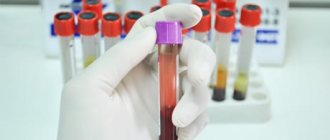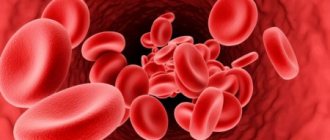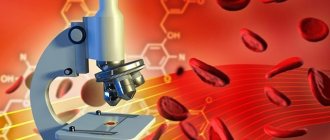Procedure for checking a blood donor
Donors are people who voluntarily donate blood and components for transfusion and drug production. For one procedure, doctors take no more than 12% of the total volume, so the average dose is 400–450 ml. But even with a small loss, the body experiences stress, which requires recuperation.
The general procedure for preparing and checking a future blood donor begins by filling out a questionnaire. He answers general questions related to health, past illnesses, and vacation trips. It is important for doctors to identify all the risk factors for which it is better to postpone donation for several months: many diseases (HIV, hepatitis C) have a long incubation period.
At the second stage, donor blood is collected for testing. They should show the level of hemoglobin, coagulation, and deviations of the main indicators. It is important to exclude carriers of dangerous diseases and infections: HIV, syphilis, hepatitis.
Preparation includes following a diet. Before visiting a blood transfusion station, you must temporarily avoid fatty foods, alcohol, sweets, and citrus fruits. Doctors recommend eating fermented milk products, light soups and cereals, and drinking more clean water without gas for several days.
Important! Following the diet for several days reduces cholesterol and blood sugar levels. The donor feels better after the procedure and regains strength faster.
Types of donation
By purpose
Blood can be donated for different purposes and for different reasons. Based on this, donation happens:
- Purpose – the donor donates blood, usually urgently, to treat a relative or another person after severe bleeding (after an accident, surgery).
- Allogeneic - the donated material ends up in a blood bank and is then used for patients in need of transfusion.
- Autologous is a type of donation when blood is taken from the patient before the operation, and after the operation the taken material is infused back into the donor.
- Replacement - in this case, the donor donates blood to replace the material previously taken from the general bank for a sick relative.
According to the submitted material
Depending on the circumstances, a donor can donate whole blood or only certain components.
Whole blood donation
The permissible amount of blood that a donor can donate at one time may vary slightly from country to country. In Russia, for example, 450 ml is considered the norm, while in the USA it is 480 ml, which is equal to 1 pint. The procedure usually takes no more than 15 minutes. After it, the donor fully recovers after an average of 8 weeks.
Plasmapheresis
During this procedure, the donor donates only plasma. To do this, they first take whole blood from him, then centrifuge it and separate the plasma from the cell mass. The liquid part is taken away, and the thick components are diluted with saline and reinjected into the donor’s vein. In one procedure, up to 600 ml of plasma can be taken without harm to health. The procedure lasts approximately 1 hour. Full recovery after plasmapheresis occurs after 2 weeks.
Immune plasma donation
As in the previous case, only plasma will be required from the donor. But the most important thing: it must contain antibodies to a specific virus or bacteria. In order for the donor’s body to contain these antibodies, he must receive the necessary vaccination before the procedure. That is, a special vaccine is injected into his body, provoking the production of antibodies and the formation of immunity to the disease.
Thrombocytapheresis
Platelets are extracted from the collected blood, after which the remaining components are injected back into the donor. This procedure is somewhat more complicated than plasmapheresis or donation of whole material. Up to 450 ml of platelet mass can be taken from a donor at one time. The procedure takes about 2 hours. Recovery will take within 2-3 weeks.
Erythrocytapheresis
The procedure is carried out similarly to plateletpheresis, but it is not platelets that are extracted, but erythrocytes - red blood cells (erythromass). Erythrocytapheresis lasts within 30 minutes. After the procedure, the donor recovers within 1 month.
List of contraindications to donating blood and its components
The main requirements for a future donor are citizenship of the Russian Federation, age over 18, and no contraindications after undergoing an examination. The calculation takes into account the weight of people over 50 years old, the results of tests and the questionnaire provided.
There are contraindications to the procedure:
- Absolute. They assume a complete refusal to participate in the voluntary program for donating blood and components. These are congenital or acquired diseases, bad habits.
- Temporary. Once the cause is eliminated, the donor can return to regularly donating blood. Restrictions are imposed for different periods of time from 3 months to a year, and are associated with a previous illness, cosmetic procedure, or unfavorable environmental conditions.
In some emergency situations, doctors decide to take blood from a person with temporary contraindications. Possible risks for the recipient of the biomaterial are preliminarily eliminated.
Donating blood renews it
Blood is a cellular mass (blood cells) and plasma (the liquid part of the blood). Blood, circulating throughout the body, delivers nutrients to its cells. The blood in the body is regularly and constantly renewed, new blood cells are formed. However, this process is different for donors compared to ordinary people.
For those who donate blood regularly, the blood renewal process begins 48 hours after donating blood. New blood cells will completely restore the lost blood volume. The process of formation of new blood cells ends 4-8 weeks from the date of donation. Renewal of blood significantly improves the health of donors.
Restrictions on donation for men
Reasons not listed in the general contraindications are highlighted separately. For the stronger sex, they are associated with an unhealthy lifestyle and bad habits. You cannot donate blood in the following situations:
- smoking (the use of vapes and aromatic additives remains questionable);
- regular consumption of alcohol and energy drinks;
- a history of sexually transmitted diseases;
- taking steroids while playing sports.
A young man’s non-traditional sexual orientation becomes a refusal. This is associated with a high risk of contracting HIV and other sexually transmitted diseases. In many countries, such restrictions are not considered a reason for refusal.
Temporary contraindications
Transfusions of blood or its components, surgical interventions, including abortion, tattooing or acupuncture of the donor, stay on business trips for more than 2 months in a row, stay in malaria-endemic countries in subtropical and tropical climates for more than 3 months, a history of malaria in the absence symptoms and negative results of immunological tests, close contact with patients with hepatitis, typhoid fever after recent recovery, influenza, ARVI, tonsillitis, tooth extraction, vegetative-vascular dystonia, acute or chronic inflammatory processes in a state of exacerbation, menstruation, pregnancy and lactation, allergies in the state exacerbations, recent vaccinations, taking medications or products containing alcohol. For each of these and other possible reasons, people are temporarily prevented from donating. More detailed information can be found by making an appointment with a hematologist.
Contraindications for women
Many girls are active donors. Most restrictions are associated with a woman’s low weight, which must exceed 50 kg. Doctors do not recommend donating blood if you have hypotension if your blood pressure is within 90/60 mm. rt. Art.
Individual contraindications for women:
- delivery (must take at least 1 year);
- induced abortion (at least six months);
- menstruation;
- breastfeeding (you can donate blood 3 months after the end of lactation);
- endometriosis.
The reason for refusal is the regular use of hormonal contraceptives, drugs and dietary supplements for weight loss. They change the composition of the blood and can affect clotting. Anemia after strict diets and fasting becomes a temporary limitation.
The harms of blood donation
If a person is in normal health, there are usually no harms or negative consequences of donating blood; it has been determined that negative consequences occur in no more than 2% of all people who donate blood. The most common of all negative consequences is fainting due to a sharp drop in blood pressure and the appearance of a bruise at the site of a vein puncture (for example, I never even had a bruise). A study [4] showed that out of 194,000 people who donated blood, serious long-term negative complications were observed in only one person.
When donating not whole blood, but plasma, sometimes negative consequences can be observed due to a reaction to the anesthetic used to preserve the plasma, and sometimes calcium supplements are taken during donation to prevent hypocalcemia (it is better to use foods rich in calcium rather than drugs) and donors also need take good vitamins.
Is it possible to donate blood after tooth extraction?
For most people, the reason for tooth extraction is a purulent cyst or abscess at the root. Complications are often accompanied by the spread of infection in the patient’s body. During treatment, antibiotics and antiseptic drugs are used, which affect the composition of the blood, coagulation, and the level of basic indicators.
Doctors consider tooth extraction to be a temporary contraindication for donation. If the dentist performed surgery with stitches, cleaning, and antibiotics, you can donate blood after 3-6 months. For planned resection of a molar, a temporary limitation is imposed for 10–14 days until the wound on the gum heals.
Existing lists of temporary and absolute contraindications contain general recommendations. Modern laboratories quickly identify hidden infections and pathologies, preventing the possibility of collecting contaminated blood. In some situations, doctors individually decide whether to allow a donor to participate in the procedure, so as not to harm the person’s health.
What happens to the body after donating blood?
On average, the adult human body contains about 5 liters of blood. That is, after 1 procedure, the donor loses almost 10% of its original composition. In addition, in the case of donating whole material, the amount of heme in his body decreases by almost 225-250 ml. Experts call heme a combination of ferrous iron and porphyrin. These substances form the core of hemoglobin and are responsible for transporting oxygen throughout the body. That is, after donating blood, oxygen metabolism in the donor’s body worsens. How dangerous is it? If the loss of heme does not exceed 250 ml, then the body copes with this quite easily, activating its own compensatory mechanisms.
In the aorta and carotid artery there are special baroreceptors that record the pressure inside the vessels. When the volume of blood in the vascular system decreases, they transmit special impulses to the heart and lungs, causing them to work more actively.
After the donation procedure, the body more actively produces antidiuretic hormone, which is responsible for the regulation of fluid in the body. Thanks to its activity, the blood vessels narrow slightly and the pressure in them is restored. When a person loses a certain amount of blood, a surge of another hormone is observed in his body - erythropoietin, which activates the formation of red blood cells. Thus, a chain of mechanisms is launched in the human body to quickly restore losses.
Myths and rumors
There are many myths about the dangers of blood donation for the body that scare people away. The most common rumor is that during the procedure you can become infected with incurable diseases. This is not true, since moments of sterility at blood donation stations are taken very seriously. When collecting, only disposable sterile instruments are used; they are opened right in front of the donor’s eyes.
Many people fear that donation is harmful. The volume of blood taken from the body is restored very quickly. In fact, the procedure, on the contrary, is very beneficial for health if all the rules are followed.
On a note! Also, do not be afraid that the procedure takes a lot of time. The collection process is organized in such a way as to avoid long queues. The fence takes no more than 15-20 minutes.
Who should not donate blood for life?
A lifelong ban applies to people suffering from serious chronic diseases that negatively affect the health of the person himself and can affect the condition of the recipient.
Who else should not donate blood? It is forbidden to become donors to people whose blood volume reduction could cause serious harm to themselves.
Chronic infections
Why can’t you donate blood for such diseases? Because they are transmitted through blood.
- These include HIV (AIDS), for which no cure has been invented to this day.
- Hepatitis, unlike AIDS, is treated with varying degrees of success. However, despite advances in therapy, the blood of people who have had them is not allowed for transfusion.
- Modern medicine has achieved certain successes in the treatment of leprosy (leprosy), but a person with such a disease can never be a donor.
- The same rule applies to the following infectious diseases:
- tuberculosis,
- brucellosis,
- syphilis,
- typhus,
- tularemia.
- Donation is prohibited for people who are unlucky enough to contract parasitic infections:
- toxoplasmosis,
- echinococcosis,
- filariasis and others.
Skin diseases
People with various skin diseases cannot be donors. This applies to:
- autoimmune diseases (lupus erythematosus),
- fungal infections (mycoses, candidiasis),
- pathologies with unclear etiology (psoriasis, eczema).
Blood diseases
The ban applies to benign and malignant blood pathologies. For example, donation is prohibited if blood clotting is poor due to the risk of severe bleeding.
Oncological diseases
Donation is prohibited regardless of the location and degree of development of malignant tumors.
Diseases of the heart and blood vessels
Donation is contraindicated for people suffering from heart and vascular diseases, since pressure surges due to the removal of almost 500 ml of blood (40 ml for analysis and 450 ml for transfusion) can pose a serious threat to their health and even life. On the list:
- cardiac ischemia,
- atherosclerosis,
- heart disease,
- dilated veins (varicose veins).
Organic lesions of the central nervous system
People with central nervous system pathologies (epilepsy, Parkinson's disease, meningitis), no matter what the cause, can never become donors.
Pathologies of the respiratory system
Their list includes several respiratory diseases.
- Donation is excluded in case of a disease such as bronchial asthma. It requires the constant use of medications, and they will one way or another be present in the blood plasma, which can harm the recipient. Donating blood can impair the oxygen supply to the donor's vital organs, which is already inadequate due to inflammation of the respiratory tract.
- The ban applies to bronchiectasis, accompanied by a chronic suppurative process in the bronchi.
- To donate blood, you must not be sick:
- diffuse pneumosclerosis,
- emphysema,
- obstructive bronchitis.
Pathologies of the digestive system
You cannot become a donor if a person:
- zero acidity (achylic gastritis),
- stomach or duodenal ulcer,
- cirrhosis,
- calculous cholecystitis.
Diseases of the urinary system
A ban on donation exists for diffuse and focal kidney damage and urolithiasis.
Pathologies of the endocrine system
A complete ban when there are obvious violations in its activities. For example, when the pancreas produces insufficient amounts of the hormone insulin, which causes blood sugar to rise (diabetes mellitus). Removing large amounts of blood can lead to a diabetic coma.
Diseases of the visual system
At any blood transfusion station they will refuse to accept blood from a person if he suffers from diseases of the organs of vision:
- trachoma,
- severe myopia,
- blindness,
- inflammatory eye diseases.
Surgical operations
- You will not be able to become a donor if different organs have been removed completely or partially:
- uterus,
- ovaries,
- intestines,
- spleen
- The ban also applies to people who have undergone organ transplantation.
Other reasons for complete refusal
- It is prohibited to donate blood to women during pregnancy and breastfeeding.
- Alcoholics and drug addicts, people with mental illnesses are deprived of the right to become a donor.











